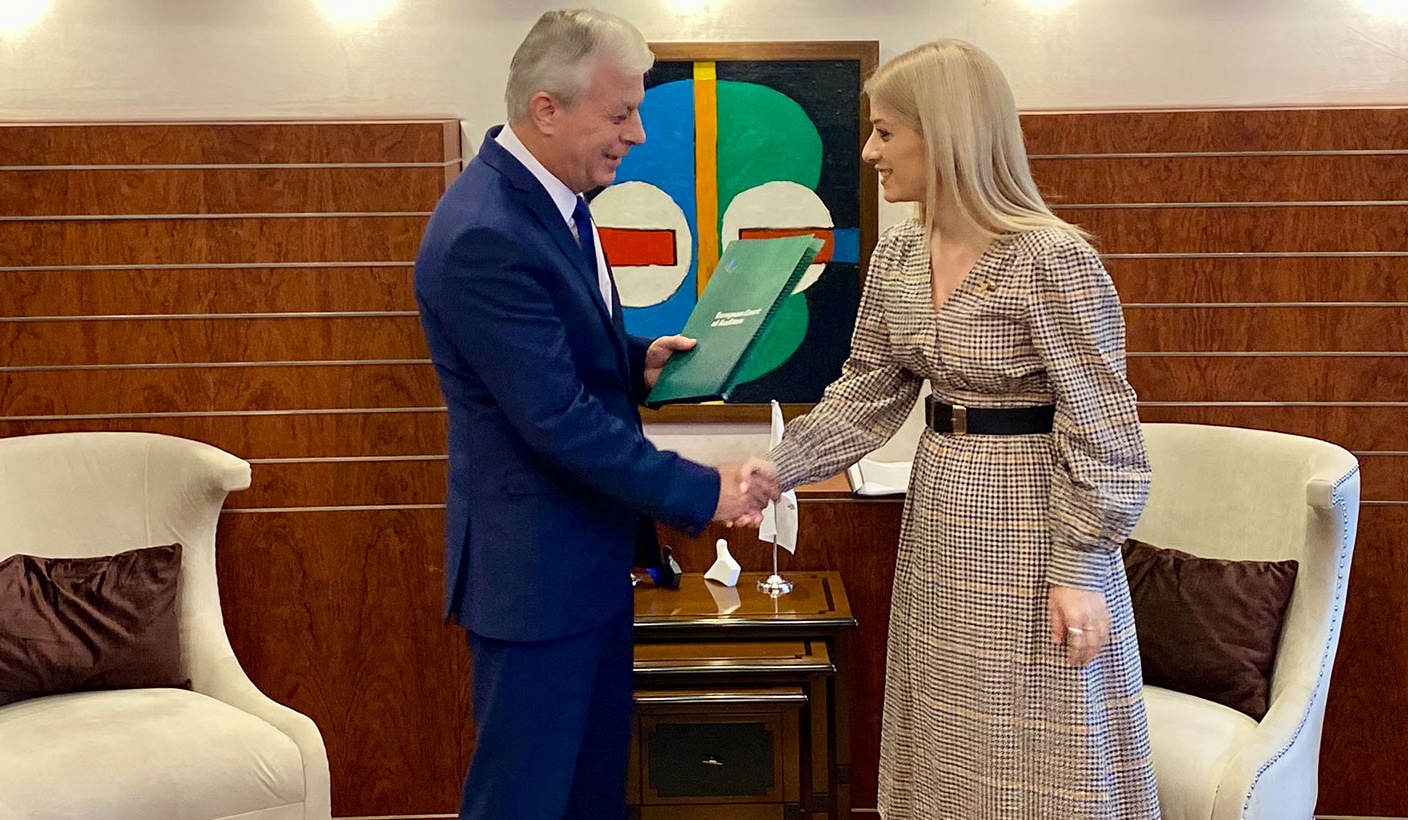By Nick Theodoulou and Elias Hazou
Cyprus has become a net recipient of EU funds, reversing a long-standing position of being a net contributor, as the country’s EU funding report for 2022 was handed over on Thursday.
Member of the EU’s Court of Auditors (ECA) Lefteris Christoforou said that by 2027 Cyprus will have handled €3.93 billion of EU funds.
Presenting the report to House president Annita Demetriou, he said: “Cyprus has ceased to be an equal contributor to the EU… now it receives multiple times more money from the EU.”
Christoforou further praised Cyprus for being a “champion” in terms of absorbing EU funds, explaining that it is beyond 95 per cent and hopes that the island will utilise every euro available.
The official added that Cyprus must redouble its efforts “in order not to lose a single euro” from the €3.93bn earmarked in the 2021-2027 Multi-annual Financial Framework and through the national Recovery and Resilience Plan.
“Europe is with us and truly provides momentum, development and prospects,” he said, adding that the almost €4bn available in total EU funding will be a game-changing socioeconomic boost for the country.
“It will completely change the landscape,” Christoforou said.
The auditor emphasised that €1bn comes as part of the EU Recovery and Resilience Facility and a further €200m are loans.
For her part, Demetriou said the funds come amid a highly challenging period.
“In a difficult and economically complex period, with all that is happening, we must respond with more Europe, more checks, and more support for the protocols,” she said.
Christoforou further explained that the ECA is an institutional body which is an external auditor of the EU’s finances – acting as an independent ‘guardian’ of the public’s interests.
He said its vital work is centred on providing impartial assessments on the reliability of how the funds are spent.
Cyprus is eligible for the funds once it reaches various milestones/targets. In this respect, and regarding the national Recovery and Resilience Plan, Christoforou said the ECA has examined a sample of 14 out of the 270 milestones. The only issue flagged was that the promised reform of the civil service – now scheduled to start in early 2024 – ought to have begun earlier.
The official also met with legislators during a joint session of the House audit and finance committees. There, MPs queried Christoforou for details on how much EU financial aid has gone to Ukraine so far.
According to Christoforou, in 2021 the EU gave €6.7bn, and €16.7bn in 2022. Another €18bn was approved during 2023, and a new €50bn package is coming down the pipe.
Diko MP Zacharias Koulias asked whether “these huge amounts” given by European taxpayers come with conditions or checks on how they are spent.
Responding, Christoforou said decisions on providing support to Ukraine or other countries are policies decided unanimously at the European Council and subsequently approved by the European Parliament.
The ECA, he noted, has no authority or say on such funding decisions. But it can check whether the funds are being used as they should be.







Click here to change your cookie preferences